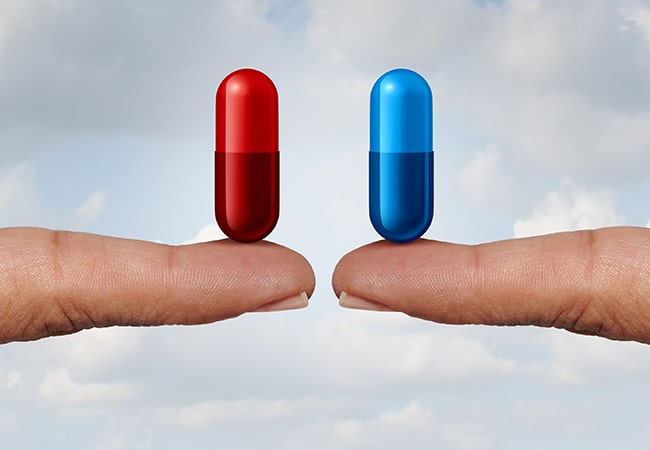The short answer is “No.” Because biological medicines and biosimilars are becoming more widely used, it is important for plan managers to understand what they are, how they differ from generic and brand name drugs, and the implications of them for managing plan medication costs.
Biological medicines, including biosimilars, are drugs which involve large and complex molecules which are produced from living organisms. There has been much talk of these recently because they are used in the production of the COVID-19 vaccines. Generics are created using simple chemicals and replicate a branded drug. A biosimilar is a copy of a branded Biological medicine. This means, the approval process for biosimilars is more extensive and more expensive than the process to make and approve generics.
A biosimilar is a copy of an original biologic drug made by a different drug manufacturer once the original drug’s patent expires. Because biological medicines and their biosimilars use living organisms, no two batches of biosimilars are identical, nor are they identical to the original biological. However, in Canada, they are not approved until they are rigorously tested with clinical trials to make sure they have the same efficacy.
There are now biological and biosimilar medicines which are being used to treat rheumatoid arthritis, ulcerative colitis, Crohn’s disease, cancer, diabetes, multiple sclerosis, kidney disease and severe psoriasis.
What does all of this mean for plan managers?
With branded drugs, generics are almost always a much less expensive alternative. Some generics are only 25% of the cost of the original branded drug. Eventually, the same might be true of biosimilars as they cost less than half what it cost to develop the biologicals. Choosing Biosimilars versus Biologics could present potential savings for plan managers to recognize in the future as you determine what type of Drug regime you wish for you plan to provide. Another consideration may be, that, in some cases, manufacturers of biologics may be willing to provide financial support through coordination with a benefit plan. For example, they might cover a plan member’s copay, or provide clinical support such as adherence reminds and check-ins with nurses.
Two examples are: A biosimilar called Basaglar costs 80% of the biologic Lantus, a long acting insulin for treatment of diabetes, and a biosimilar called Inflectra costs 53% of the biologic Remicade which is used for inflammatory conditions.
For now, Benefit Plan Managers should be aware of the coming changes to drug pricing as biosimilars gain usage and more of them are developed. The fact that many biosimilars offer additional patient support services should be considered as part of the savings the company can realize.
We would welcome the opportunity to educate you more about how biologics and biosimilars will be impacting your Employee Benefit plans, so please schedule a Complimentary Consultation with Health Risk Services.
At Health Risk Services we will Empathize, Educate, and Empower you and your team into 2021!
To schedule your Complimentary Consultation with Health Risk Services, please Call 403-236-9430 OR email: [email protected]













